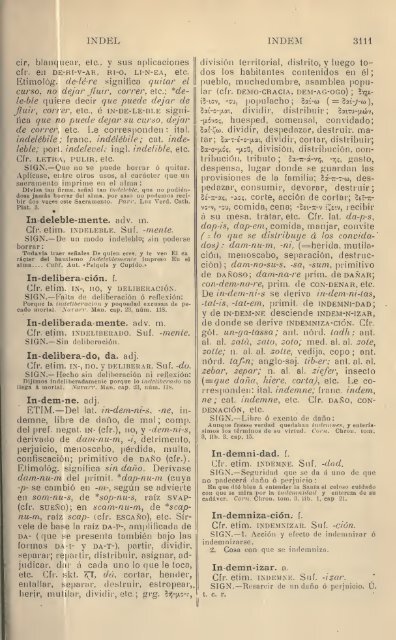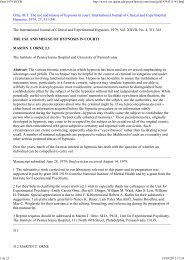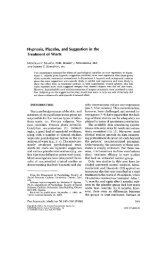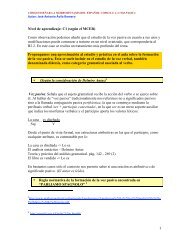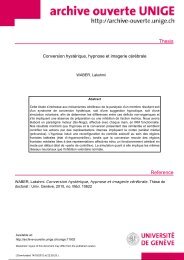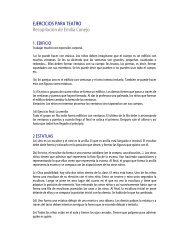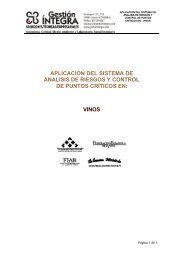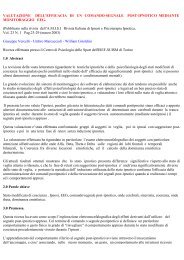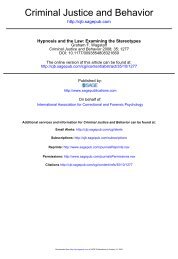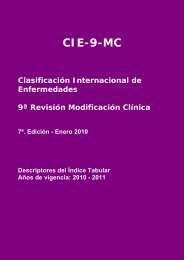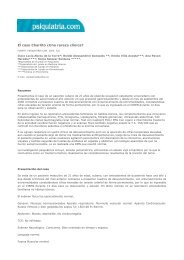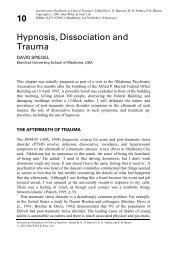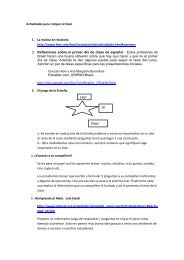Diccionario filológico-comparado de la lengua castellana
Diccionario filológico-comparado de la lengua castellana
Diccionario filológico-comparado de la lengua castellana
You also want an ePaper? Increase the reach of your titles
YUMPU automatically turns print PDFs into web optimized ePapers that Google loves.
INDEL INDEM 3111<br />
cir, b<strong>la</strong>nquear, etc.. y sus aplicaciones<br />
cfr. en <strong>de</strong>-ri-v-ah. ri-o, li-n-ea, etc.<br />
Etimológ. <strong>de</strong>-lé-re significa quitar el<br />
curso, no <strong>de</strong>jar Jluir, correr, etc.; *<strong>de</strong>le-ble<br />
quiere <strong>de</strong>cir que pue<strong>de</strong> <strong>de</strong>jar <strong>de</strong><br />
fluir, correr, ele, é in-<strong>de</strong>-le-ble significa<br />
que no pue<strong>de</strong> <strong>de</strong>jar su curso, <strong>de</strong>jar<br />
<strong>de</strong> correr, etc. Le correspon<strong>de</strong>n: ital.<br />
in<strong>de</strong>lébile: franc. indélébile ; cat. in<strong>de</strong>-<br />
leble; port. in<strong>de</strong>lecel; ingl. in<strong>de</strong>lible, etc.<br />
Cfr. LETRA, PULIR. etC.<br />
SIGN.— Que no «e pue<strong>de</strong> borrar ó quitar.<br />
Aplícase, entre otros usos, al carácter que un<br />
sacramento imprime en el alma:<br />
Divisa tan firme, señal tan in<strong>de</strong>leble, que no pudiéndose<br />
jamás horrar <strong>de</strong>l alma, por esso no po<strong>de</strong>mos recibir<br />
dos veces este Sacramento. Parv. Luz Verd. Cath.<br />
P<strong>la</strong>t. 3.<br />
In-<strong>de</strong>leble-mente. adv. m.<br />
Gfi'. etiin. INDELEBLE. Suf. -mente.<br />
SIGN.— De un modo in<strong>de</strong>leb<strong>la</strong>; sin po<strong>de</strong>rse<br />
borrar:<br />
Todavía traer señales De quien eres, y te veo El ca<br />
rácter <strong>de</strong>l bautismo In<strong>de</strong>leblemente impreso En el<br />
alma Cald. Aut. «Pbiquis y Cupido.»<br />
In-<strong>de</strong>libera-ción. f.<br />
Cfr. elim. ln-, no, y <strong>de</strong>liberación.<br />
SIGX.—Falta <strong>de</strong> <strong>de</strong>liberación ó reflexión:<br />
Porque <strong>la</strong> in<strong>de</strong>libei'acion y poquedad excusan <strong>de</strong> pecado<br />
mortal, yuriirr. Man. cap. 23, núm. 118.<br />
In-<strong>de</strong>liberada-mente. adv. m.<br />
Cfr. etim. in<strong>de</strong>liberado. Suf. -mente.<br />
SIGN.— Sin <strong>de</strong>liberación.<br />
In- <strong>de</strong>libera-do, da. adj.<br />
Cfr. etim. in-, no, y <strong>de</strong>liberar. Suf. -do.<br />
SIGN.— Hecho sin <strong>de</strong>liberación ni reflexión:<br />
Dijimos in<strong>de</strong>liberadamente porque lo in<strong>de</strong>liberado no<br />
llega á mortal. Xavarr. Man. cap. 23, núm. 118.<br />
In-<strong>de</strong>m-ne. adj.<br />
ETIM.— Del <strong>la</strong>t. in-<strong>de</strong>m-ni-s, -ne, in<strong>de</strong>mne,<br />
libre <strong>de</strong> daño, <strong>de</strong> mal ; comp.<br />
<strong>de</strong>l pref. negat. in- (cfr.), no, y -<strong>de</strong>m-ni-s,<br />
<strong>de</strong>rivado <strong>de</strong> dam-nu-m, -i, <strong>de</strong>trimento,<br />
pei'juicio, menoscabo, pérdida, multa,<br />
confiscación; primitivo <strong>de</strong> daño (cfr.).<br />
Etimológ. significa sin daño. Derívase<br />
dam-nu-m <strong>de</strong>l |)rimit. *dap-nu-m (cuya<br />
-p- se cambió en -m-, según se advierte<br />
en som-nu-s^ <strong>de</strong> *sop-nu-s, raíz svap-<br />
(cfr. sueño); en scam-nu-m, <strong>de</strong> *scapnu-m,<br />
raíz scap- (cfr. escaño), etc. Sírvele<br />
<strong>de</strong> base <strong>la</strong> i-aíz da-p-, amplificada <strong>de</strong><br />
DA- (que se presenta también bajo <strong>la</strong>s<br />
formas da-i- y da-t-), partir, dividir,<br />
.separar; re[)ai tir, distribuir, asignar, ad-<br />
judicar, diir á cada uno lo que le toca,<br />
etc. Cfr. skt. T^, da, cor<strong>la</strong>r, hen<strong>de</strong>r,<br />
ental<strong>la</strong>r, separar, <strong>de</strong>struir, estropea!',<br />
herir, muti<strong>la</strong>r, dividir, etc.; grg. Bt5-|xs-c,<br />
división territorial, distrito, y luego todos<br />
los habitantes contenidos en él<br />
[)ueblo, muchedumbre, asamblea popu-<br />
<strong>la</strong>r (cfr. DEMO-CRACIA, DEM-AG-OGO) ; lr,\l-<br />
íB-tcv, -cu, popu<strong>la</strong>cho; Saí-w ( = caí-^z-w ),<br />
Saí-o-[xa'., dividir, distribuir; Sairj-jxwv,<br />
-[jLÓvo?, huésped, comensal, convidado;<br />
BaKw- dividir, <strong>de</strong>spedazar, <strong>de</strong>struir, matar;<br />
Ba-T-é-o-s^a'., dividir, cortar, distribuir;<br />
Sa-a-p-c?, -p-oü, división, distribución, contribución,<br />
tributo; oa-x-á-vvj, -/¡i;, gasto,<br />
<strong>de</strong>spensa, lugar don<strong>de</strong> se guardan <strong>la</strong>s<br />
provisiones <strong>de</strong> <strong>la</strong> familia; Sá-K-r-w, <strong>de</strong>spedaza!'^<br />
consumir, <strong>de</strong>vorar, <strong>de</strong>struir;<br />
Bé-Tc-a?, -ao;, corte, acción <strong>de</strong> cortar; ceT-r:-<br />
vo-v, -o'j, comida, cena; -Bei-^-v í^e-.v, lecibir<br />
á su mesa, tratar, etc. Gfi". <strong>la</strong>t. da-p-s,<br />
dap-is, dap-em, comida, manjai', convite<br />
^ f lo que se distribuye á los convida-'<br />
dos): dam-nu-m, -ni, (=herida, inuti<strong>la</strong>ción,<br />
menoscabo, separación, <strong>de</strong>strucción);<br />
dam-no-su-s. -so, -sum, primitivo<br />
<strong>de</strong> dañoso; dam-na-re prim. <strong>de</strong> dañar;<br />
con-<strong>de</strong>m-na-re, prim. <strong>de</strong> con-<strong>de</strong>nar, etc.<br />
De in-<strong>de</strong>m-ni-s se <strong>de</strong>riva in-<strong>de</strong>m-ni-ías,<br />
-íat-is, -tat-em, primit. <strong>de</strong> in<strong>de</strong>mni-dad;<br />
y <strong>de</strong> iN-DEM-NE <strong>de</strong>scien<strong>de</strong> in<strong>de</strong>m-n-izar,<br />
<strong>de</strong> don<strong>de</strong> se <strong>de</strong>riva in<strong>de</strong>mniza-ción. Cfr.<br />
gót. un-ga-tassa; ant. nórd. tadh ; ant.<br />
al. al. ja¿rt, :sato^ ^oto; med. al. al. 2ote^<br />
sotte; n. al. al. zotte, vedija, copo; ant.<br />
nórd. taf-n; anglo-saj. tib-er; ant. al. ni.<br />
jsebar. separ; n. al. al. ziefer., insecto<br />
[=que daña, hiere, corta), etc. Le correspon<strong>de</strong>n:<br />
ital. in<strong>de</strong>mne; íianc. in<strong>de</strong>m,<br />
ne ; cat. in<strong>de</strong>mne, etc. Cfr. daño, con<strong>de</strong>nación,<br />
etc.<br />
SIGN.— Libre ó exento <strong>de</strong> daño:<br />
Aunque fuesse verdad quedaban iní/^»í /?


